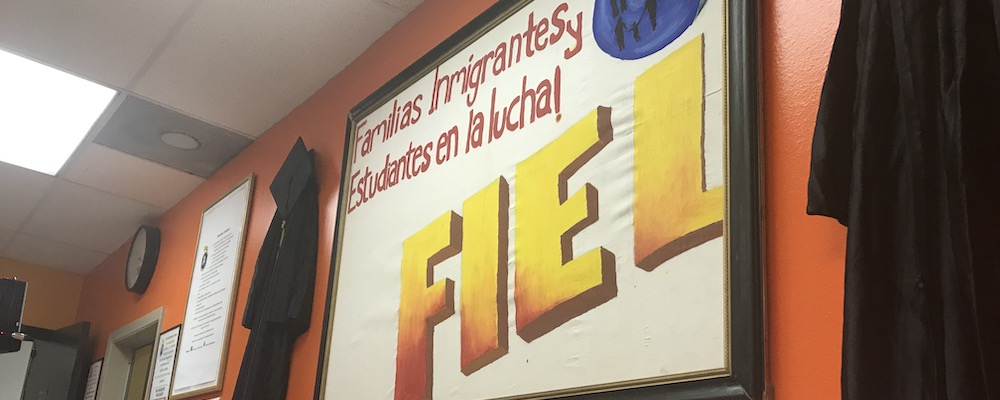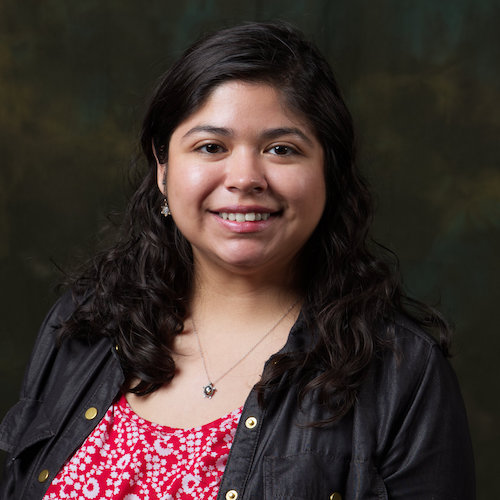 Familias Inmigrantes y Estudiantes en La Lucha, or FIEL, provides direct financial assistance and material resources to immigrant families in Houston. ©Melissa Villarreal, 2019.
Familias Inmigrantes y Estudiantes en La Lucha, or FIEL, provides direct financial assistance and material resources to immigrant families in Houston. ©Melissa Villarreal, 2019.
As Houston progresses down the long road of recovery from Hurricane Harvey, not all residents are rebounding equally. Immigrant communities were among the most affected in the city but they have been less likely to receive assistance because of policies that don’t consider their culture or particular challenges.
“Houston is a unique place to study immigrant communities and their post-disaster recovery,” said Melissa Villarreal, a Natural Hazards Center graduate research assistant doing research in the area. “The city is home to almost two million immigrants and is one of the most diverse in the country. But since arriving in Houston, I have heard stories of immigrants having to take on recovery alone with virtually no help from the state or the federal government.”
The fact that a city with such a vibrant immigrant population isn’t able to meet the long-term recovery needs of these particularly vulnerable community members points to how necessary it is to understand more about those needs—an especially difficult task considering that immigrants can be distrustful of outsiders.
 Melissa Villarreal, Natural Hazards Center.
Melissa Villarreal, Natural Hazards Center.
Villarreal took on that challenge earlier this year when she won a small grant to begin a project called Documenting the Undocumented Story that examined the barriers to recovery for Houston’s Mexican-origin immigrant community after Hurricane Harvey.
Since then, she’s secured a prestigious National Science Foundation Grant that will help her carry the research even further. Villarreal, a PhD student in the University of Colorado Boulder sociology department, was awarded an NSF Graduate Research Fellowship in April 2019. The award covers tuition and fees and provides a $34,000 yearly stipend to graduate students in STEM and social science fields so they can devote time and energy to their research interests.
Villarreal said during the next few years she plans to take advantage of the award to further her initial research and will eventually write her dissertation on what she learns. After spending the past summer speaking to community organizations about the long-term housing recovery of immigrant populations of Mexican origin, her next step will be to conduct interviews with community members to better understand their individual views of the challenges they still face in housing recovery.
“Without this generous grant, I wouldn’t have the ability to dive into my work in this way,” Villarreal said. “I’m grateful for the opportunity to finally give attention to this population. This is long overdue. I hope to make a real difference with my work in the community so that in future disaster events, we can be prepared.”